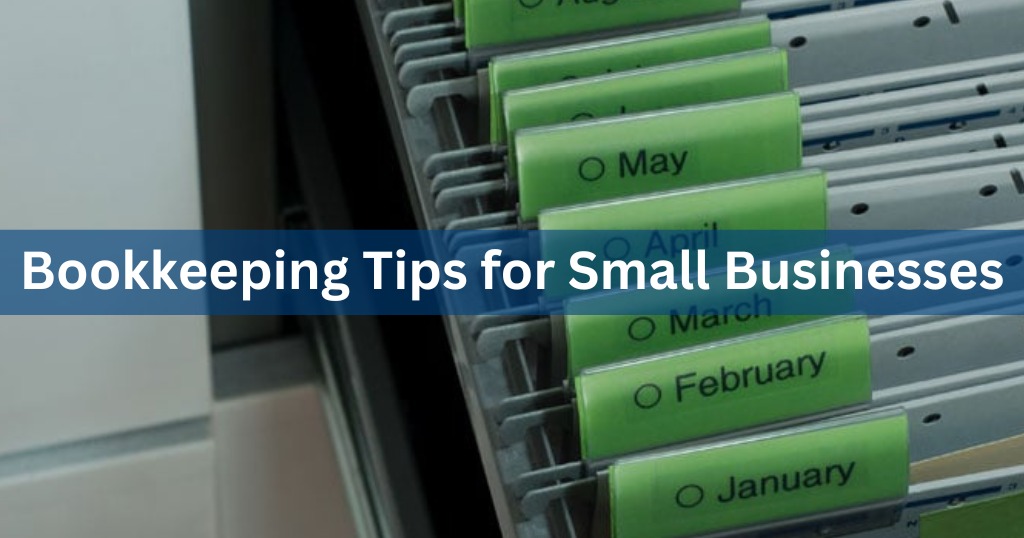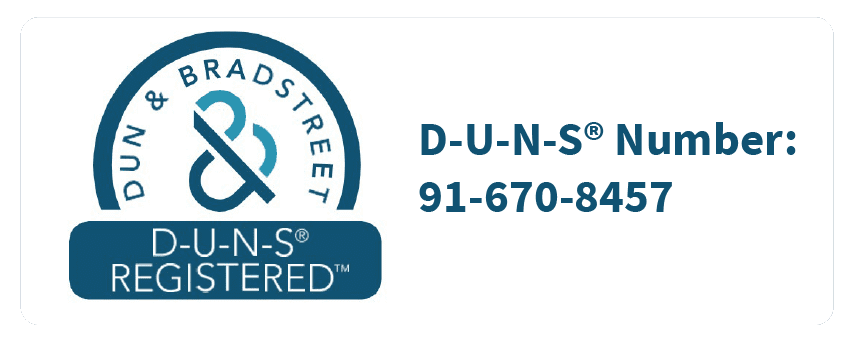09 Nov

Bookkeeping Tips for Small Businesses
Effective bookkeeping is a crucial aspect of small business management, involving the meticulous tracking of financial transactions for accuracy and insights into the company’s financial well-being. Despite its potential challenges, implementing essential strategies can simplify and enhance bookkeeping for optimal results. This blog will delve into ten valuable bookkeeping tips tailored for small businesses, offering guidance to ensure financial stability and success.

1. Organize Your Financial Records
One of the first and most crucial steps in effective bookkeeping is to maintain an organized
system for your financial records. Start by creating a dedicated filing system for all your financial
documents, such as invoices, receipts, bank statements, and tax records. This system should
be easy to access and should include both physical and digital copies. Using digital accounting
software can help you keep your records organized and easily searchable.
2. Separate Personal and Business Finances
Many small business owners make the mistake of mingling their personal and business
finances. This can lead to confusion and make it difficult to track business expenses accurately.
To avoid this, open a separate business bank account and credit card. This separation will make
it easier to record and categorize transactions, simplifying your bookkeeping process.
3. Choose the Right Accounting Software
Investing in the right accounting software can save you time and reduce the chances of errors in
your bookkeeping. There are various accounting software options available for small
businesses, such as QuickBooks, Xero, and Wave. These tools offer features like automated
data entry, customizable reports, and integration with your bank accounts, making it easier to
track your finances and generate essential financial statements.
4. Track Income and Expenses Regularly
Don’t wait until tax season to start organizing your financial data. Regularly update your books
by recording income and expenses as they occur. This practice ensures that your financial
records are up to date, making it easier to manage cash flow, make informed decisions, and
meet your tax obligations.

5. Categorize Your Transactions
Properly categorizing your transactions is crucial for accurate financial reporting and tax
preparation. Set up a chart of accounts with categories that align with your business operations.
Make sure you assign each transaction to the appropriate category. This categorization will help
you monitor expenses, identify areas for cost-cutting, and provide insights into your financial
performance.
6. Reconcile Bank Statements
Reconciliation is the process of comparing your financial records, such as your accounting
software, with your bank statements. Regularly reconciling your bank statements ensures that
your records are accurate and that no transactions are missing or duplicated. This step is
essential for identifying errors and detecting potential fraud.
7. Create a Budget
Creating a budget for your small business can be a powerful tool for managing your finances. It
allows you to plan for future expenses, set financial goals, and track your progress. Your budget
should include both income and expenses, and you should regularly review and adjust it as
needed to adapt to changing circumstances.
8. Keep an Eye on Tax Obligations
Small businesses often face complex tax requirements, including income tax, sales tax, and
payroll tax. Failing to meet these obligations can result in penalties and legal issues. Stay
informed about your tax responsibilities and deadlines, and set aside funds to cover your tax
liabilities. Consider working with a tax professional or accountant to ensure you comply with all
tax laws and take advantage of available deductions and credits.

9. Backup Your Data
Data loss can be a significant setback in bookkeeping. To prevent this, regularly back up your
financial data, both offline and online. Use cloud-based accounting software to ensure your
information is securely stored and accessible even in the event of hardware failure or data loss.
Implementing a robust backup strategy is essential for safeguarding your financial records.
10. Seek Professional Help
As your business grows and becomes more complex, it may be beneficial to seek professional
bookkeeping or accounting services. An experienced bookkeeper or accountant can provide
valuable advice, help you navigate tax regulations, and assist with financial analysis.
Outsourcing these tasks can save you time and ensure that your financial records are accurate
and compliant.
In conclusion, effective bookkeeping is critical for the success of any small business. By
implementing these ten bookkeeping tips, you can maintain organized financial records, make
informed decisions, and ensure that you meet your financial obligations. Whether you choose to
handle your bookkeeping in-house or enlist the help of professionals, the key is to stay proactive
and consistent in managing your finances. Remember that accurate and up-to-date financial
records are the foundation of your business’s financial stability and growth.



